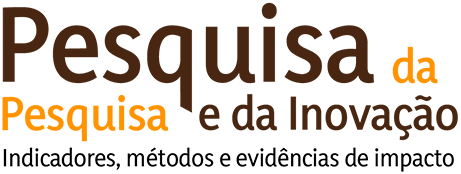Researchers from the Laboratory for Studies on Research and Innovation Organization (Geopi | Unicamp), who are part of the “Research on Research” project, presented five papers and coordinated a special session at the 28th International Conference on Science, Technology and Innovation Indicators, 2024, which took place from September 18 to 20 in Berlin, Germany.
STI is one of the largest conferences in the world in the field of Science, Technology, and Innovation (STI) Indicators. “We made an important presence at the event, which is primarily focused on the European community but also has good participation from people in South Asia and Latin America. It is crucial to showcase the topics we are working on and the approaches adopted,” highlighted Ana Maria Carneiro, one of the coordinators of Geopi.
The five papers presented covered topics such as the alignment of the Sustainable Development Goals with research funding, publications, and public policy documents; transformations in academic collaborations driven by scientific diaspora; special criteria for women researchers who are mothers in public funding agencies in Brazil; the availability of data on equity and diversity from funding agencies; and the impact of academic production generated through university-industry collaboration.
“We introduced a new approach to the subjects, questioning certain concepts. For example, the paper by Adriana Bin, coordinator of Front 2, discussed the classification of research within the SDGs, showing inconsistencies in some classifications,” added Carneiro.
Front 2 of the Research on Research project aims to discuss and test different ways of selecting projects in research and innovation in funding agencies, as well as creating methodologies to measure biases that may occur in proposal selection processes. According to Adriana Bin, these topics are significant in the debate on the role of funding agencies in the contemporary world. “This kind of discussion is essential to rethink the role of funding agencies and research and innovation funding policies in the country,” she stated.
In addition to this front, papers with research results from Fronts 1 and 3 were also presented, which respectively investigate research funding and its results, uses, and impacts on society, as well as the trajectory, mobility, and national and international cooperation of researchers.






Special Session
In addition to the five papers presented, researchers Evandro Coggo and Sergio Salles-Filho coordinated a special session at the conference, along with researchers Rodrigo Costas, Ed Noyons, Biegzat Murat, and Cassidy Sugimoto. The session’s theme was “Methodological approaches to capture knowledge flows between research and public policy: the role of open sources and inequalities in the spotlight.”
“Science generates evidence and concepts across all areas of knowledge, from life sciences to social sciences and humanities, through physics and all others. Theories and concepts about how everything works come from laboratories. A universe of knowledge is used by us every day in health, mobility, food, in everything, including the design of public policies,” explained Sergio Salles-Filho, general coordinator of Research on Research and Front 1 of the project. “The session proposed by LabGeopi at the conference brought together several researchers discussing how to measure the influence of science on public policy design,” he added.
Click on the links below to check the abstracts of each paper presented on the STI platform:

